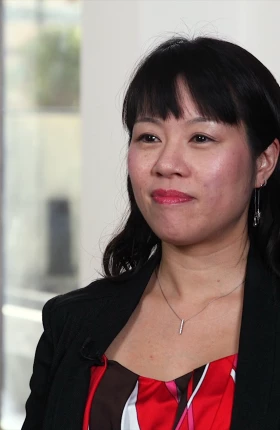Companies have already taken steps to reduce costs along the supply chain. Further reductions require tougher decisions in several key areas.
Featured Insights
Supply Chain Management
Video
January 10, 2025
Staying Ahead of Trends in Global Trade
Geopolitics is escalating already seismic shifts in global trade. As trade lanes evolve, consider shifting your supply chains to make them more robust, cost effective, and resilient.

Article
February 6, 2024
With parallels to the complexities of building a house, BCG’s approach to transforming a supply chain emphasizes the importance of coordination, digital enablement, and speed.

Article
August 7, 2024
Costs are threatening the ability of process companies to take advantage of both organic and inorganic growth opportunities because of expanding financial constraints.
BCG-WEF Project: AI-Powered Industrial Operations
How can manufacturers harness the latest technologies to optimize for increased productivity, improved sustainability, greater resilience, and a stronger workforce?
Procurement
Video
January 27, 2025
The Cost-Saving Power in Procurement
Declining producer prices have given process industry firms a crucial but limited window of opportunity to renegotiate contracts and set a new cost baseline.

Article
September 25, 2024
As the global business landscape grows more complex and politically fraught, companies are struggling to balance cost reduction, supply chain resilience, and access to key markets.

Article
February 13, 2024
Companies can use a category-specific analysis to identify the best alternatives to conventional sourcing strategies.

Article
April 18, 2025
Procurement is poised to capitalize on AI, which can streamline manual work in key processes by up to 30% and reduce overall costs by roughly 15% to 45%.
BCG Executive Perspectives: The CEO’s Dilemma
In this series, we examine the disruptive forces that are bearing down on business leaders today, so that they can understand where opportunities exist amid the uncertainty.
Manufacturing

Article
October 23, 2025
The pressure is on for manufacturers. But opportunity awaits those who rethink their approach to AI, efficiency, and operations.

Article
July 30, 2025
Many ambitious efforts fail to reach their potential because leaders overlook the shifts needed to unite teams and drive lasting improvements.

Slideshow
August 23, 2023
Advanced manufacturers lead their peers across six key attributes, particularly in embedding AI into their operations. This is the factory of the future.

Article
September 21, 2023
Trade disruptions have prompted many global companies to shift where they produce and source goods. But getting the desired results requires a difficult balancing act.
Amid shifting dynamics, transforming the global footprint can improve companies’ resilience and sustainability and cut manufacturing and supply chain costs. How are successful companies doing it?
Service & Support

Article
February 18, 2025
Companies that prioritize selling aftermarket services to supplement equipment sales not only generate much more income, they also solidify lasting relationships with customers.
Video
Companies Can Generate Value by Improving Their Data
Dealing with data quality issues at the source lets businesses start with a strong foundation and make the most of GenAI, DQC’s Michael Spira explains.

Article
September 6, 2024
Customer service organizations will not achieve their ambitious goals for generative AI – in terms of quality and efficiency – unless they transform their operating model.

Article
December 12, 2023
Reaching a higher, value-adding level of support function maturity isn’t a distant vision but a tangible goal that can be achieved with purposeful action.
We're on LinkedIn
Follow BCG's Operations practice on LinkedIn for the latest operations insights and news across all aspects of the product journey.
Capital Project Management
Video
July 14, 2020
Secrets Behind Successful Large Capex Projects
To keep projects on track, managers must excel on multiple fronts–including fostering transparency into project challenges, encouraging collaboration among all stakeholders, and candidly assessing project risks.
Video
July 14, 2020
Think Big
Behind “think big” is transparency and collaboration. That’s how BCG conceives a successful large capital project. Let’s think big to make big things happen.

In a turbulent, fast-changing world, innovation success means getting it right over and over again.
Weekly Insights Subscription
Stay ahead with BCG insights on operations
Operational Excellence
Video
October 21, 2025
Rebuilding Operations with AI at the Core
Capita’s Adolfo Hernandez tells BCG’s Max Reimpell how the company is redesigning every process around AI to boost speed, service, and human impact.

Report
November 18, 2024
BCG research reveals what sets a select group of leaders apart. Here's how to join them.

Article
February 22, 2024
Organizations’ biggest cost is usually operations, making it the first place to seek efficiency and productivity improvements to fund the future.

Slideshow
September 25, 2023
Organization-wide platforms for product and service delivery enable agile ways of working and rapid recovery from crisis.
Explore more
Capability
Capability













